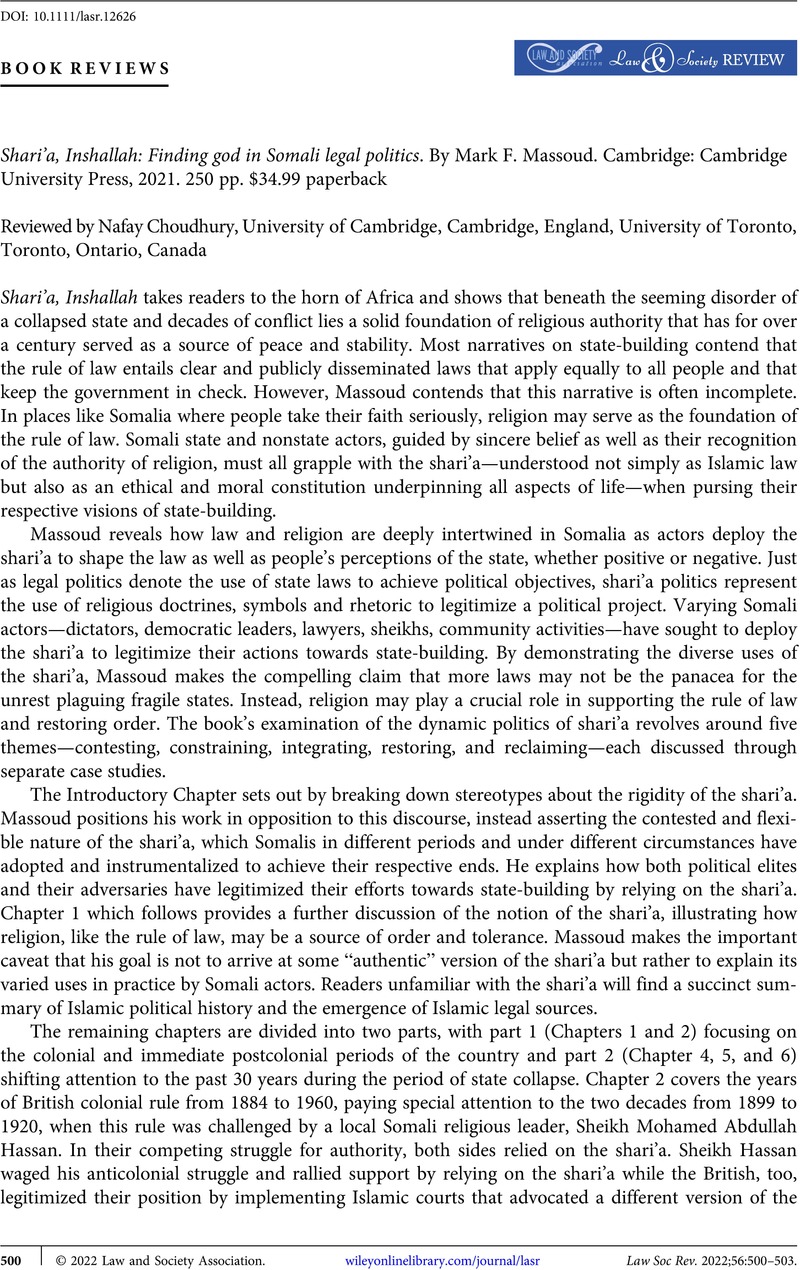No CrossRef data available.
Article contents
Shari'a, Inshallah: Finding god in Somali legal politics. By Mark F. Massoud Cambridge: Cambridge University Press, 2021. 250 pp. $34.99 paperback
Review products
Shari'a, Inshallah: Finding god in Somali legal politics. By Mark F. Massoud Cambridge: Cambridge University Press, 2021. 250 pp. $34.99 paperback
Published online by Cambridge University Press: 01 January 2024
Abstract
An abstract is not available for this content so a preview has been provided. Please use the Get access link above for information on how to access this content.

- Type
- Book Reviews
- Information
- Copyright
- © 2022 Law and Society Association.


